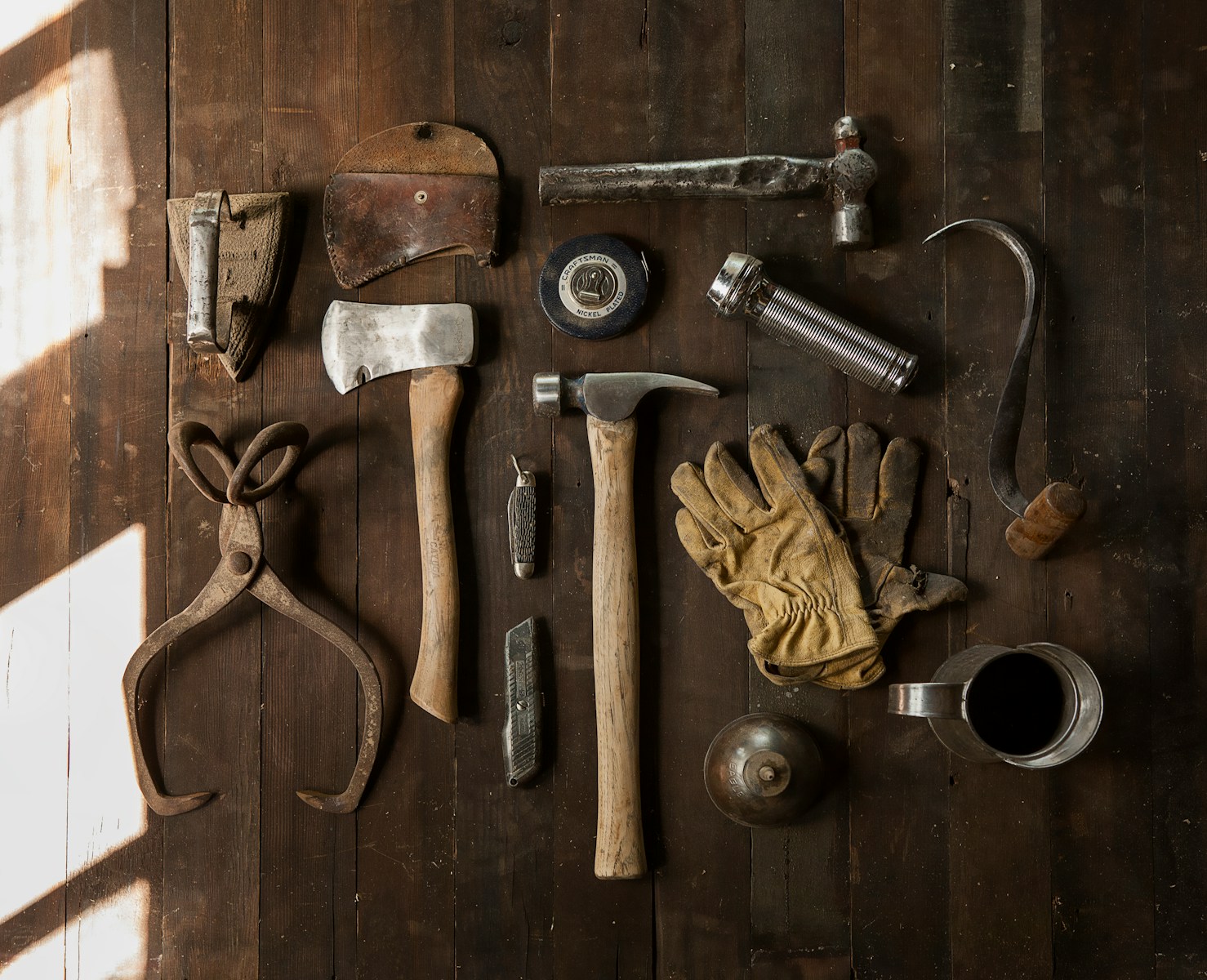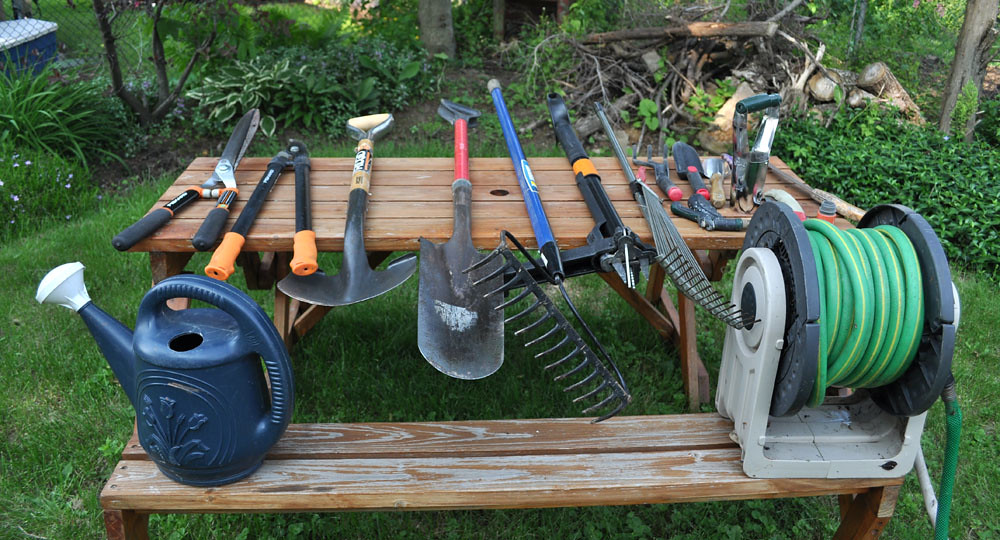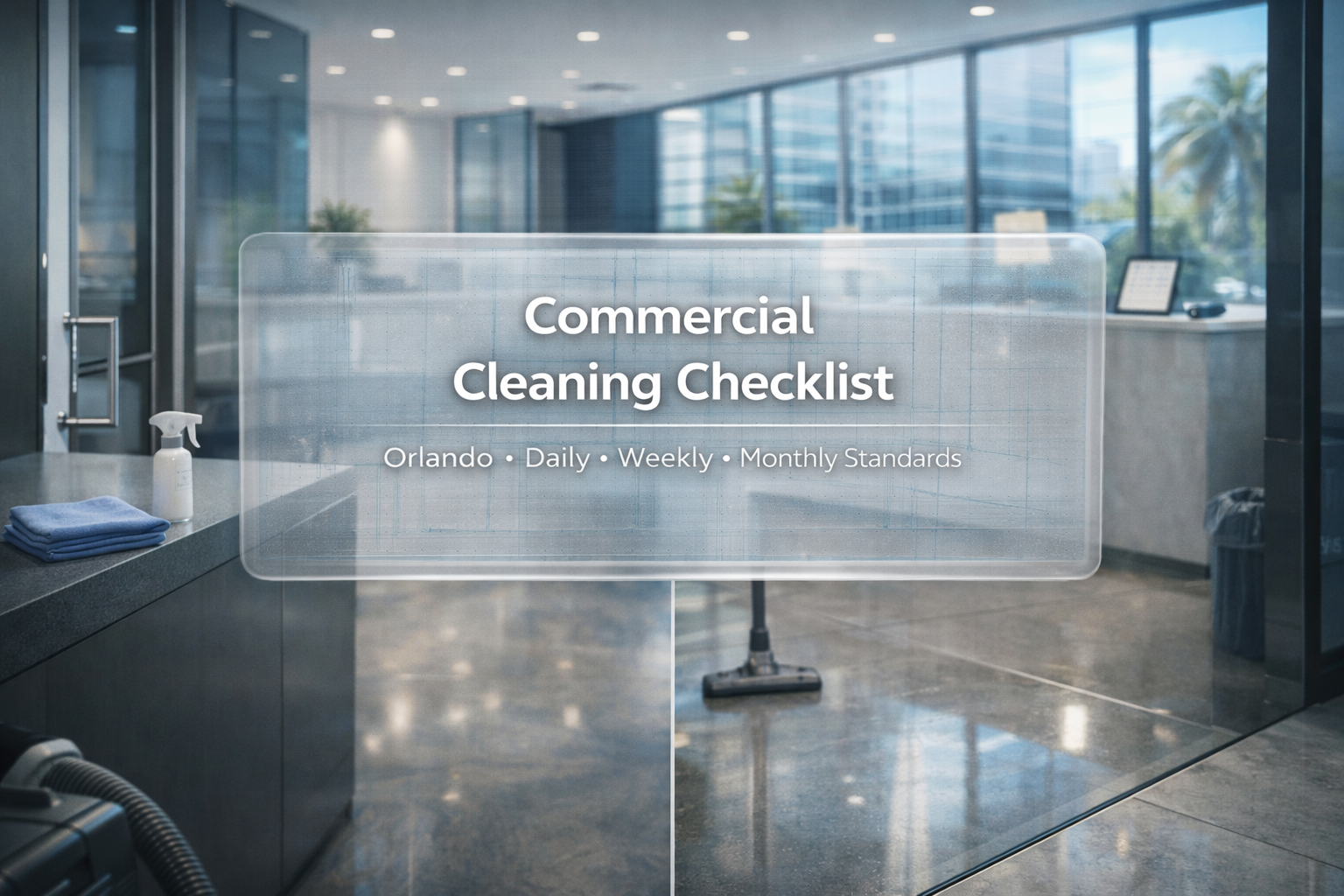Cleaning your garden tools is vital for maintaining their longevity and effectiveness. When you neglect this task, dirt and grime can build up, leading to rust and diminished performance. You might think a quick wipe is enough, but there’s more to it. From removing debris to proper storage, each step plays an important role in tool care. Let’s explore with Top Cleaning FL about the right techniques to guarantee your tools stay in top shape for years to come.
Main Points
- Remove soil and debris from tools immediately after use to maintain cleanliness and prevent disease spread.
- Wash tools with warm, soapy water, then rinse thoroughly to eliminate dirt and pathogens.
- Dry tools completely after washing to prevent rust formation and ensure longevity.
- Disinfect tools by soaking them in a 50% vinegar and 50% water solution overnight.
- Store tools in a dry, organized location to protect them from moisture and damage.
Why It’s Important to Clean Your Garden Tools
While you mightn’t think about it often, regularly cleaning your garden tools is vital for maintaining a healthy garden. Clean rusty garden tools not only improve your gardening experience but also prevent the spread of disease-causing pathogens.
When you disinfect garden tools, you help maintain garden sanitation, particularly between different plants. Using isopropyl rubbing alcohol effectively kills any fungi and bacteria lingering on your equipment.
Additionally, cleaning tools before storage is important for their longevity. To maintain your gardening equipment, embrace simple garden tool care tips, like applying oil to prevent rust and using emery cloth to remove stubborn dirt.
Knowing how to remove dirt from tools guarantees they stay in peak condition, ready for your next gardening task. Ultimately, giving your tools the attention they deserve leads to healthier plants and a flourishing garden.
Step-by-Step Guide to Cleaning Gardening Tools
Cleaning your gardening tools doesn’t have to be an intimidating task; in fact, following a straightforward step-by-step guide makes it easy and effective.
Start by removing any soil and debris from your tools right after use. For stubborn dirt, grab a wire brush or scraper to get the job done.
Next, wash your tools with warm, soapy water, and rinse them thoroughly to guarantee all residue is gone.
After washing, dry your tools completely to prevent rust from forming. Take this opportunity to inspect each tool for any damage, as early detection can save you money and hassle later on.
Finally, store your tools in a dry, sheltered location to keep them safe from moisture. Hanging them on walls or using racks can help keep everything organized.
Regular cleaning not only extends the lifespan of your tools but also boosts your gardening efficiency.

How to Disinfect and Prevent Rust on Tools
Disinfecting and preventing rust on your gardening tools is vital for maintaining their longevity and performance.
Start by cleaning your tools thoroughly with soap and water to remove dirt and debris. Afterward, dry them completely to prevent moisture accumulation, which accelerates rust.
To disinfect, you can soak tools in a 50% vinegar and 50% water solution overnight, then scrub off any rust and wash again.
For rust prevention, apply a light coat of oil to metal surfaces, creating a protective barrier against moisture. Regularly inspect your tools for early signs of rust, and address them promptly—options include using baking soda paste or commercial rust removers, following the instructions carefully.
Finally, store tools in a dry environment and consider using silica gel packs to absorb excess moisture. This proactive approach guarantees your tools stay in top shape for years to come.
Proper Storage Tips After Cleaning Garden Tools
How can you guarantee your garden tools stay in prime condition after cleaning? Start by storing them in a dry location, such as a shed or garage, to prevent rust.
Utilize a proper tool rack to keep your tools organized and off the ground, which helps avoid damage. Arrange them so you can easily see and access what you need—this also prevents accidents.
For gas and electric equipment, winterize them by draining oil, checking spark plugs, and storing batteries in a dark, dry place.
Inspect your tools regularly for any signs of wear or damage; this allows you to address issues before they worsen.
Finally, remember to maintain and clean hoses and other watering tools, ensuring they’re free from debris before storage.
Common Mistakes to Avoid When Cleaning Tools
Proper storage keeps your garden tools in top shape, but the cleaning process is just as important. Avoid common mistakes to guarantee your tools last longer and perform better.
First, don’t scrub your tools vigorously; instead, use a gentle blotting motion with a cloth to avoid scratches. Also, be cautious with cleaning products; using too much can leave residues that attract dirt. Remember, less is more—just like toothpaste, a small amount goes a long way.
Don’t forget to clean your cleaning tools, like sponges, regularly; dirty tools can spread grime rather than remove it. Additionally, always clean under and around items in your shed to prevent dust buildup.
Finally, organize your cleaning supplies to streamline the process. By avoiding these mistakes, you’ll keep your garden tools in great condition, ready for your next gardening session.

Frequently Asked Questions
How Often Should I Clean My Garden Tools?
You should clean your garden tools after each use to prevent rust and soil buildup. Regular maintenance keeps them in top shape, ensuring they work efficiently for your gardening tasks and extends their lifespan considerably.
Can I Use Soap and Water for Cleaning?
Yes, you can use soap and water for cleaning. Mix mild soap with warm water, scrub the tools with a brush, and rinse thoroughly. This method effectively removes dirt and prevents rust from forming.
What Tools Are Best for Scrubbing?
For scrubbing, use stiff-bristled brushes, like hand brushes or scrub brushes. They effectively remove dirt and grime. A toothbrush also works for tight spots. Choose tools based on the size and intricacy of your equipment.
Is It Necessary to Dry Tools After Cleaning?
Yes, it’s necessary to dry your tools after cleaning. Moisture can cause rust and damage. Wipe them down with a cloth or let them air dry to maintain their longevity and performance for future use.
Can I Clean Power Tools the Same Way?
You can’t clean power tools the same way as garden tools. Focus on using a damp cloth for surfaces, avoid excess moisture, and guarantee electrical components stay dry to maintain functionality and safety.
Conclusion
Cleaning your garden tools is essential for maintaining their longevity and effectiveness. By following the steps outlined—removing debris, washing, disinfecting, and oiling—you’ll keep your tools in top shape and prevent rust. Remember to store them properly to avoid damage. Avoid common mistakes, like neglecting to dry your tools or using harsh chemicals, to guarantee they serve you well for years to come. A little care goes a long way in gardening success!





